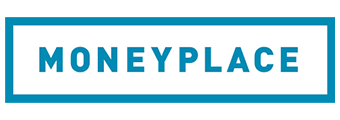By using the car itself as security, lenders face less risk, which often translates to lower interest rates, higher borrowing limits, and more flexible loan features for you. However, while secured car loans can be a more affordable way to finance your next vehicle, they also come with conditions like age limits and the risk of repossession if repayments fall behind.
Before you sign on the dotted line, make sure you understand exactly how a secured car loan works.
What is a Secured Car Loan?
A secured car loan is a type of consumer loan where the vehicle you purchase acts as collateral (security) for the lender. This means if you default or breach the loan agreement, the lender has a legal right to repossess and sell the vehicle to recover the outstanding debt. And for this very reason - the lender having a fallback (the car) - secured car loans often carry lower interest rates than unsecured personal loans.
The car you're buying is typically registered as security via a Personal Property Securities Register (PPSR) entry. It is common for lenders to set eligibility criteria in regards to age and condition (usually new or up to 5-7 years old only) as well as the type of vehicle they are willing to accept. This structure reduces the risk for the lender, which can benefit the borrower through more favourable terms, provided you meet creditworthiness criteria.
While some banks or non-bank lenders will only accept the car being purchased as a form of security, others may accept additional vehicles owned by the borrower, as well as home equity or term deposits.
How to compare secured car loans
There are several factors to consider when comparing secured car loans, including:
Interest rates
With a secured car loan, you'll typically be offered the choice between two options: either a fixed or variable interest rate. Fixed interest rates will provide repayment certainty over the life of the loan, allowing you to budget with greater ease, while variable rates provide flexibility, generally with the addition of features such as the ability to make extra repayments.
Ensure you take advantage of the table above to compare interest rates across banks and lenders to find the most competitive deal.
Fees
Lenders may charge an array of fees, including application fees, early repayment fees, and ongoing account fees. Make sure you compare these charges across different products and take them into account when calculating the total cost of the loan.
Loan features
Consider the features on offer across different products. Do they allow you to make additional repayments? Is there a redraw facility available? These features can lower your total interest cost - if they're applied without excessive fees or restrictive conditions. But some products (especially fixed-rate ones) may limit redraws or impose penalties, so always check the fine print.
Loan term
A longer loan term means lower monthly repayments, but it also means you will pay more in interest charges over the life of the loan. It is the opposite with a shorter loan term. Consider which option best suits your current and future financial position.
Pros of Secured Car Loans
Lower interest rates
Because your car acts as collateral, lenders view the loan as lower risk. This often translates to more competitive rates compared with unsecured personal loans. For example, secured car loan rates in Australia can start from as low as the mid-5% range, whereas unsecured loans can push into double digits. Over the life of a loan, that difference can save you thousands in interest.
Higher borrowing potential
Lenders are generally more willing to approve larger loan amounts when there's an asset backing the debt. This can make it easier to fund a new car purchase without needing a large deposit.
Eligibility for newer vehicles
Secured car loans are often structured around new or near-new vehicles. Many lenders in Australia will finance cars up to 5 years old - and some may even go up to 10 - which means you're more likely to secure funding for the vehicle you want. Since newer cars can be easier to resell, this reduces risk for the lender and often improves loan conditions for you.
Loan terms flexibility
While not every product is feature-rich, many secured car loans allow borrowers to make additional repayments, redraw extra funds, or even repay the loan early without penalty. This flexibility can help you pay off your loan faster and reduce overall interest.
Structured repayments
Some lenders also allow balloon payments, which lower your monthly repayments by deferring a lump sum to the end of the loan term. This helps manage cash flow by reducing your monthly repayments; however, it means you'll need to pay a lump sum at the end of the loan, resulting in a higher total interest payment as you're deferring the principal.
Cons of Secured Car Loans
Risk of repossession
The biggest downside of a secured car loan is the possibility of losing your vehicle if you default. If repayments consistently fall behind, the lender has the right to repossess and sell your car. While repossession is usually a last resort after warnings and hardship options, it's a serious risk to keep in mind.
However, this doesn't mean unsecured loans are risk-free. Defaulting could see the lender take legal action to recover their money.
Negative equity
Cars lose value quickly. The Australian Tax Office (ATO) estimates most cars depreciate by 25% per annum. If you've borrowed the full purchase price, you may end up in negative equity (owing more than the car is worth). This can become a problem if you want to sell the vehicle before the loan is paid off, you write it off, or if the lender repossesses and sells it for less than what you owe.
Vehicle age and condition restrictions
Not all cars are eligible. Most lenders will only finance new or used cars up to a certain age (commonly 7-10 years by the end of the loan term). High-mileage vehicles, heavily modified cars, or classic cars may be excluded from standard secured loans.
Use of funds limitations
Unlike unsecured loans, which you can use for a wide range of expenses, secured car loans are usually limited to the vehicle purchase itself. That means costs like stamp duty, registration, insurance, or accessories often need to be covered out-of-pocket or through a separate loan.
Mandatory insurance
Many lenders want to see a comprehensive car insurance policy taken out before green-lighting the loan. This can be more expensive than other types of insurance, and evidence of the policy shows you're a diligent motorist and lower risk for the lender.
Who Qualifies for a Secured Car Loan?
Although eligibility criteria vary by lender, typical requirements in Australia include:
-
Age and residency - You must be at least 18 years old and an Australian citizen or a permanent resident to be eligible.
-
Income - You must have proof of regular income from employment (or business revenue) to service repayments.
-
Credit score - While security helps, your credit record still matters. Lenders will review past defaults, judgments, or credit defaults.
-
Serviceability - Lenders test whether your income minus expenses can support the loan repayments (i.e. that you can afford it).
-
Vehicle eligibility - The car must meet lender standards (age limit, make/model, condition). Many lenders restrict vehicles to under 5-10 years old.
-
Deposit - Some lenders may require a deposit, while others allow 100% financing. Extra security (such as savings or equity) may strengthen your case.
Some lenders may impose geographic restrictions, require comprehensive vehicle insurance, or need acceptable security registration on the PPSR.
Secured vs Unsecured: What's the difference?
|
Feature |
Secured Car Loan |
Unsecured Personal Loan |
|
Collateral |
The car itself acts as security |
No collateral required |
|
Interest rate |
Generally lower vs unsecured loans |
Higher, to offset increased risk |
|
Loan limits* |
$5,000 - $100,000+ |
$5,000 - $60,000 (often more conservative limits) |
|
Use of funds |
Usually restricted to car purchase and associated costs |
More flexible; you can use funds broadly |
*Varies by lender



















